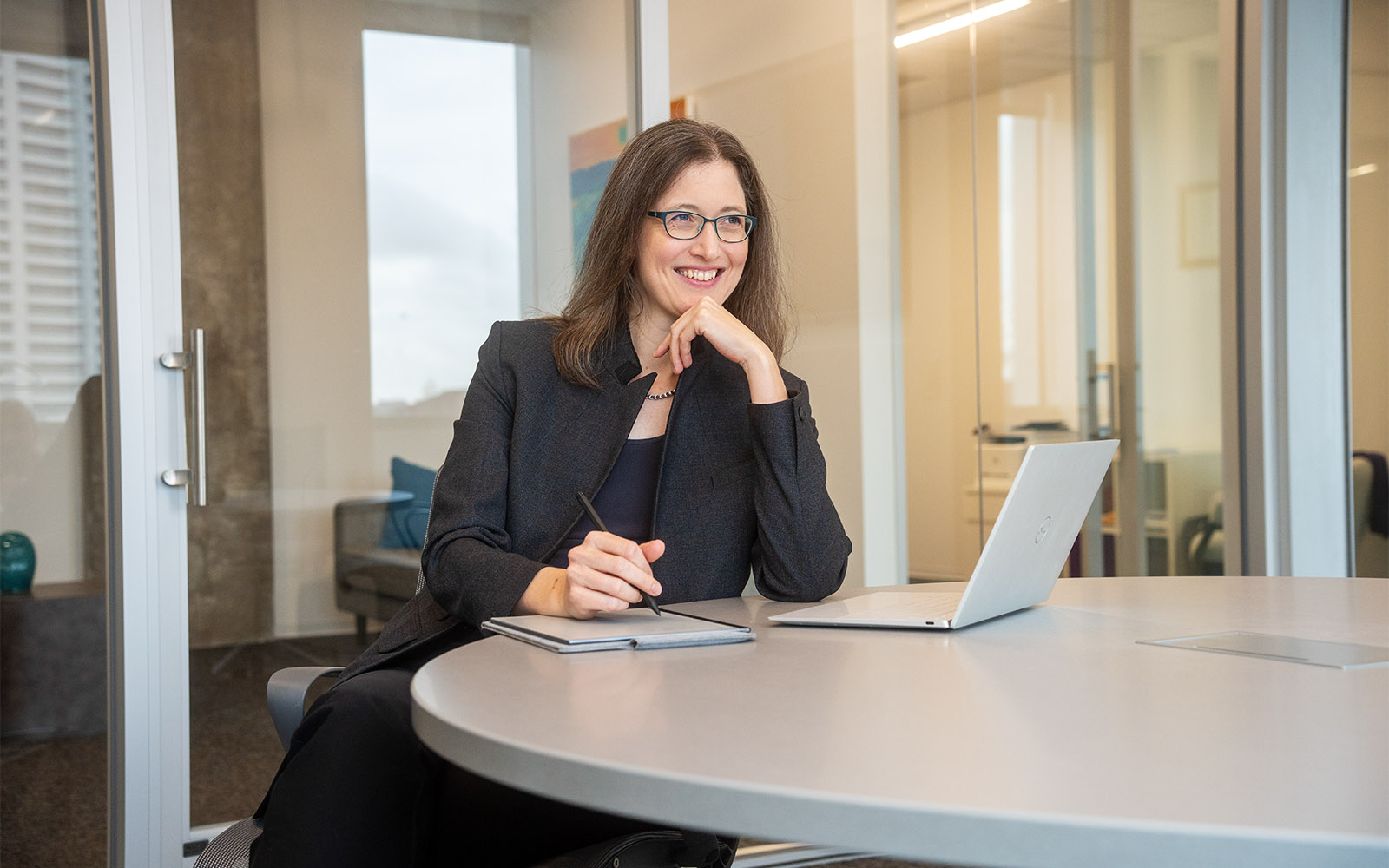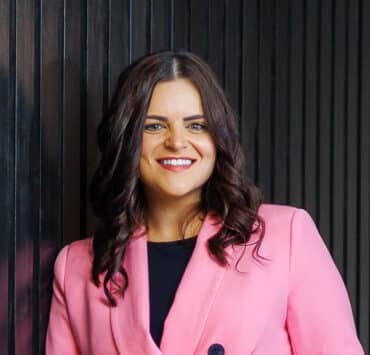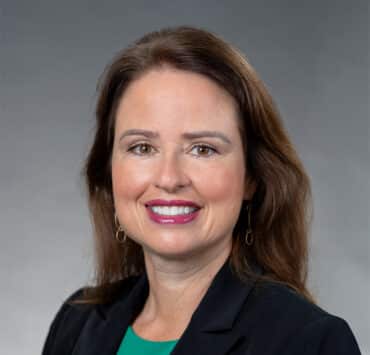As an entrepreneur with an electrical and computer engineering background, Emma Fauss was always drawn to the way emerging technology could be used to change the world. That’s why she was deeply moved by the work of Craig Rusin, an engineer and professor who conducted cutting-edge medical research.
“His research centered on using physiological data coming from patients in the hospital to detect or predict deterioration,” Fauss recalls. “If you could predict it, you could get ahead of it and prevent bad things from happening to patients. It was very fascinating to me and stood out as a truly revolutionary technology. That’s where we came up with the idea to create something that could scale and be in every hospital across the globe.”
In 2010, the two founded Medical informatics Corporation (MIC). The company works to redefine patient monitoring, expedite intervention, reduce risk, and enable hospitals to make informed and data-driven decisions through Sickbay, a clinical surveillance and analytics platform. Sickbay allows healthcare professionals to access complete patient histories, automate documentation, create scalable tele-ICUs, and more.
Fauss and her colleagues believe the platform can help healthcare solve one of its most pressing problems—staff shortages. In 2023, a study by the National Council of State Boards of Nursing reported that 100,000 registered nurses left the industry since 2021, while another 610,388 potentially intended to leave by 2027. In a 2024 report by the Association of American Medical Colleges, there will be a projected shortage of 13,500 to 86,000 physicians by 2036.
Company Profile
Industry: Hospitals and Healthcare
Company Size: 51-200 employees
HQ: Houston, Texas
Founded: 2010
Specialties: Remote monitoring, tele-ICUs, waveform integration, predictive analytics, alarm management, medical research, algorithm development, automated strip export, and virtual care
These realities make solutions like Sickbay more important than ever.
“The traditional approach to addressing staffing and resource constraints is to just hire more nurses and doctors, but we’re simply not making enough to replenish the people we’re losing,” says Fauss, CEO at MIC. “An alternative is to make the people we have more efficient and more effective. That includes making documentation more efficient, rethinking how they monitor people, identifying risks before they occur, getting better visibility on the resources they do have and taking rich data from patient monitoring, and unlocking insights by layering AI and predictive analytics on top of it.”
MIC’s clinical surveillance and analytics technology isn’t the only thing that makes the company unique. Its culture also makes it stand out, Fauss says. Not only is it rooted in a clear patient-centric vision but also has been intentional about hiring along all dimensions of diversity since its founding.
“Keep in mind that we are a software company, and we are 46 percent female,” Fauss says. “We have diversity of age, nationality, background. We have experts from nursing, signal processing, mathematics, and professionals in hospitality, theater, and space industries.”
She adds that everyone at her company comes together from these unusual backgrounds and is pushed to use their experiences and their lens of the world to innovatively approach the problems MIC’s clients face.
“We have to choose what we spend [time] on and there’s no greater calling than to spend it in service of others.”
Emma Fauss
Fauss is the product of a physician-filled family. The calling to innovate in healthcare runs in her veins.
“I believe that time is your most valuable asset; you can’t make more time,” she says. “We have to choose what we spend it on, and there’s no greater calling than to spend it in service of others. That’s core to who I am and is at the heart of my team’s identity as well.”
Fauss obtained her PhD in electrical and computer engineering at the University of Virginia before receiving her MBA from Rice Business.
That journey informed her values as a leader, she says.
“As someone with a founder mentality, I probably have done it all myself at some point,” Fauss explains. “When you grow a business, you appreciate all of its components and what goes into it at every level. I aim to lead with transparency, empathy, and ethical behavior. I also believe our culture is what we make of it every day. It’s not just words on the wall.”
Moving forward, Fauss is looking forward to partnering with healthcare organizations to transform their industry.
“We are at a precipice where more people recognize who we are compared to five years ago,” Fauss says. “People know that we’re trusted advisors. We are known for supporting our clients and walking with them. We’re excited to continue walking along this path with more clients both enabling them with meaningful patient monitoring workflows and allowing them to focus more on treating their patients.”



